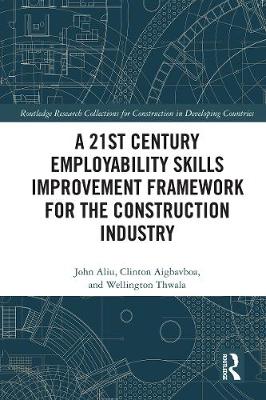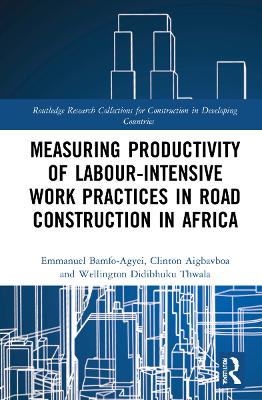Routledge Research Collections for Construction in Developing Countries
2 total works
A 21st Century Employability Skills Improvement Framework for the Construction Industry
by John Aliu, Clinton Aigbavboa, and Wellington Thwala
This book examines an issue of constant concern in the construction industry, that of productivity. Using data from Ghana and South Africa, it presents research into the productivity of local contractors in these countries whilst examining the predominance of labour-intensive production methods.
The book begins by considering the theoretical and conceptual perspectives on labour productivity in the construction industry in the existing literature, before reviewing current productivity measurement frameworks. The book then explores the productivity of labour-intensive public works projects in South Africa and Ghana alongside a general discussion of key factors affecting construction productivity in these countries. Whilst the focus is on road construction, the framework developed can be applied to any number of construction projects to measure, and ultimately improve productivity.
This book is useful reading for researchers and practitioners looking to understand the factors influencing labour productivity in construction at both the industry and the project level, including construction managers, quantity surveyors, cost engineers and project managers.

